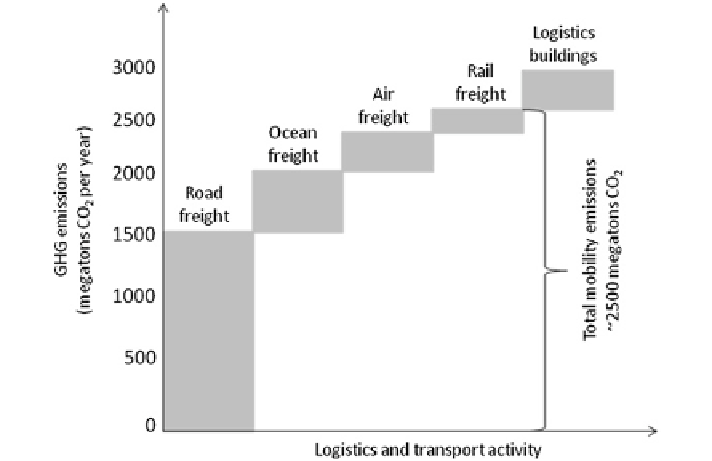Environmental Engineering Reference
In-Depth Information
Fig. 2
GHG emissions of logistics activities.
Source
Delivering tomorrow. Towards sustainable
logistics. How business innovation and green demand drive a carbon-efficient industry, 2010,
Deutsche Post AG, Bonn
4 Creating Socially Responsible Actions with the Support
of Logistic Sector Companies
On the basis of literature analysis as well as taking into consideration the above
mentioned trends in the sector under discussion it can be assumed that there is a
lot of areas (Logistics and Transport Companies
2002
) where logistic companies
may perform socially responsible actions and that there is a lot of issues requir-
ing future research. For example, with reference to logistic companies, the issues
under research include: CSR disclosures (Tong and Moussa
2012
), descriptions
of best practices for the sake of internal and external stakeholders as well as sup-
ported supply chain elements (Larsson et al.
2012
), analysis of factors influencing
the development of socially responsible actions (Lin and Ho
2010
), identification of
the level of interest in socially responsible actions among logistic service ordering
parties (Lieb and Lieb
2010
), level of knowledge about green logistics among logis-
tic companies (Krzywda
2012
), innovative initiatives within ecological effectiveness
(Rossi et al.
2013
), effectiveness of ecological driving in cargo transport (Chaari and
Ballot
2012
), relationships between Logistics Service Providers (LSPs) and shippers
in understanding the needs of providing “green services” (Martinsen and Björklund
2012
), review of logistic services in terms of sustainable development challenges
(Gammelgaard et al.
2012
), roles of logistic operators in developing sustainable sup-
ply chains in the view of ordering parties (Prockl and Gammelgaard
2012
).

Search WWH ::

Custom Search